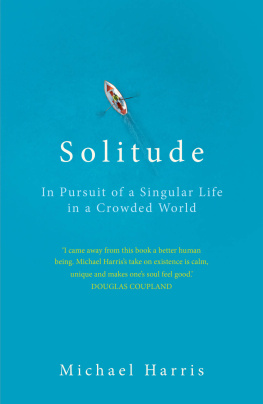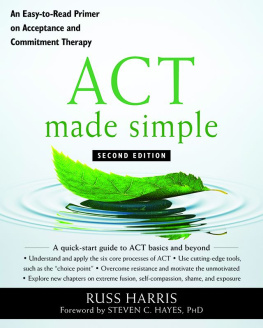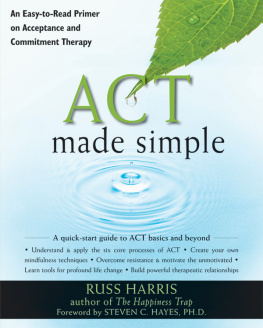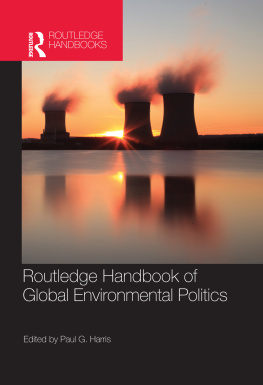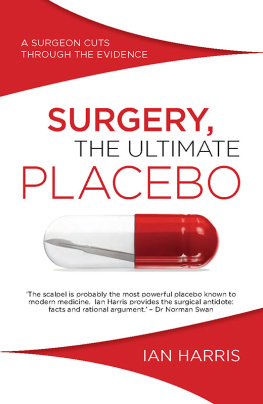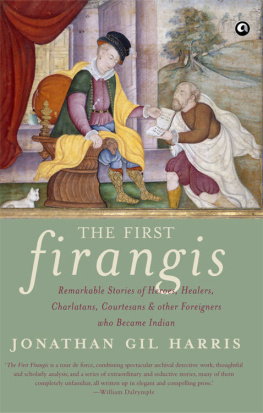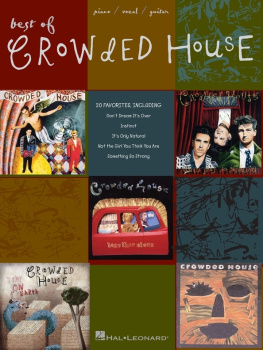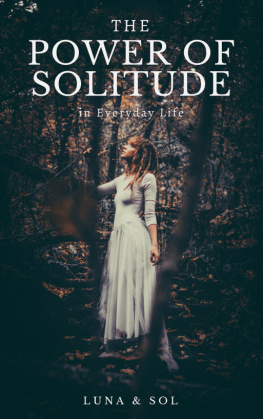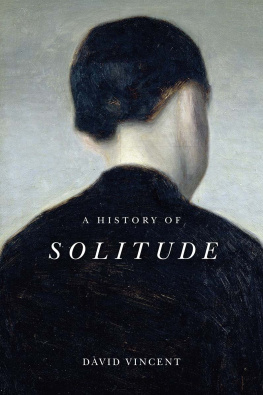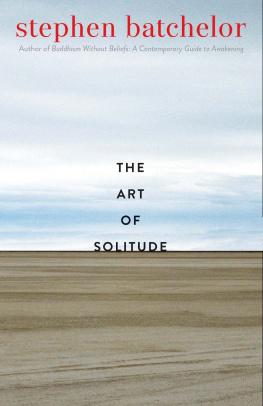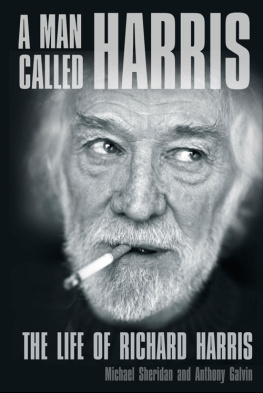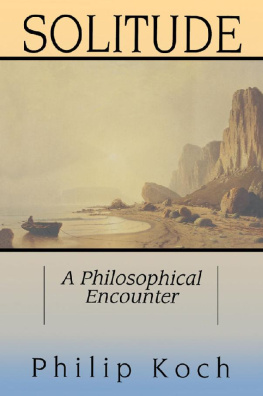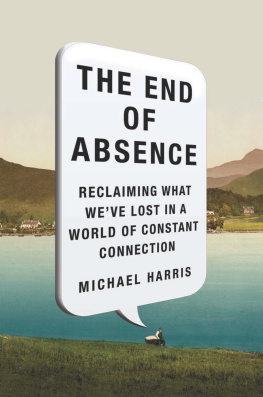Harris - Solitude in pursuit of a singular life in a crowded world
Here you can read online Harris - Solitude in pursuit of a singular life in a crowded world full text of the book (entire story) in english for free. Download pdf and epub, get meaning, cover and reviews about this ebook. City: London, year: 2017;2018, publisher: Random House;RH Books, genre: Romance novel. Description of the work, (preface) as well as reviews are available. Best literature library LitArk.com created for fans of good reading and offers a wide selection of genres:
Romance novel
Science fiction
Adventure
Detective
Science
History
Home and family
Prose
Art
Politics
Computer
Non-fiction
Religion
Business
Children
Humor
Choose a favorite category and find really read worthwhile books. Enjoy immersion in the world of imagination, feel the emotions of the characters or learn something new for yourself, make an fascinating discovery.
- Book:Solitude in pursuit of a singular life in a crowded world
- Author:
- Publisher:Random House;RH Books
- Genre:
- Year:2017;2018
- City:London
- Rating:5 / 5
- Favourites:Add to favourites
- Your mark:
- 100
- 1
- 2
- 3
- 4
- 5
Solitude in pursuit of a singular life in a crowded world: summary, description and annotation
We offer to read an annotation, description, summary or preface (depends on what the author of the book "Solitude in pursuit of a singular life in a crowded world" wrote himself). If you haven't found the necessary information about the book — write in the comments, we will try to find it.
Harris: author's other books
Who wrote Solitude in pursuit of a singular life in a crowded world? Find out the surname, the name of the author of the book and a list of all author's works by series.
Solitude in pursuit of a singular life in a crowded world — read online for free the complete book (whole text) full work
Below is the text of the book, divided by pages. System saving the place of the last page read, allows you to conveniently read the book "Solitude in pursuit of a singular life in a crowded world" online for free, without having to search again every time where you left off. Put a bookmark, and you can go to the page where you finished reading at any time.
Font size:
Interval:
Bookmark:
Solitude is a rapidly vanishing experience. Our society now embraces sharing like never before: time alone is being forced out of our lives by the constant pings of smartphones and prods of social media. But what if being alone still has something to offer us something we have forgotten, but which we still desperately need?
In Solitude, award-winning author Michael Harris examines why being alone matters now more than ever before. He reflects on the paradoxical feeling of isolation that emerges from being constantly connected and on how learning the beauty of solitude can help us escape it. After all, it is when we are alone that we realise the greatest truths about ourselves. Being alone really alone could be the only antidote to the frenzy of our digital age.
Rich with stories about the transformative power of solitude, and drawing on the research of the worlds leading neuroscientists and behavioural psychologists, Solitude offers a timely and profound exploration of how to be alone and why it matters for us all.
Michael Harris is the author of The End of Absence, which won the Governor Generals Literary Award for Non-Fiction and became a national bestseller in Canada. He writes about media, civil liberties and the arts for dozens of publications, including the Washington Post, Wired, Salon and the Globe and Mail. He lives in Vancouver.

For David Anderson and Kenny Park
There is another Loneliness
Emily Dickinson
Every life has a rhythm. For most creatures on the planet, that rhythm reflects an ongoing negotiation between the body and its surroundings, between being and environment. Theres a time for resting, a time for hunting, a time for courting, a time for hiding. For us humans, though, its more complicated than that. Because we have the power to shape our environment, through laws and customs, economic and political systems, and, not least, technologies, we are also able to control the rhythm of our lives.
That, it turns out, is a mixed blessing. On the one hand, it frees us from the grip of necessity. Were able to make choices about how we spend our time. On the other hand, we can, and frequently do, fall into a daily rhythm that ill suits us or runs counter to our best interests. We fill our days with activities that provide fleeting pleasures or momentary conveniences but that leave us feeling anxious or unfulfilled. In the worst cases, we surrender control over the rhythm of our life to othersto bosses or bureaucrats, to marketers or technicians. We end up living according to a rhythm imposed on us rather than one chosen by us. We dance to someone elses drum.
In this wise and witty book, Michael Harris examines a phenomenon that is altering the rhythm of human life in profound and unsettling ways: the loss of solitude. For more than a century, human life has been getting busier and busier. Media bombard us with messages and diversions. Work time bleeds into leisure time. The social whirl spins ever faster. Until recently, though, there were still moments in the day when the busyness abated and lifes pace decelerated. You would find yourself alone, separated from friends and colleagues, and you would be thrown back on your own resources, your own thoughts. Such interludes could provoke feelings of loneliness and boredom. Yet they also provided opportunities to tap into ideas, perceptions, and emotions inaccessible to the social self.
Now, those moments are being erased. With smartphone in hand, connectivity is continuous. Were in a crowd even when were by ourselves. The chatter never ends; the rhythm never slows. Nonstop networking may feel invigorating, but, as Harris makes clear, we sacrifice much when were never alone. Solitude is refreshing. It strengthens memory, sharpens awareness, and spurs creativity. It makes us calmer, more attentive, clearer headed. Most important of all, it relieves the pressure of conformity. It gives us the space we need to discover the deepest sources of passion, enjoyment, and fulfillment in our lives. Being alone frees us to be ourselvesand that makes us better company when we rejoin the crowd.
The art of solitudethe art that, as Harris elegantly puts it, turns blank days into blank canvasesis hard to master and easy to squander. Contemporary forces of technology, society, and commerce, beneficial forces in so many ways, conspire not only to diminish our opportunities for solitude but to seduce us into believing that solitude is at best inessential and at worst a waste of time. We should resist those forces. We should remind ourselves that a life without solitude is a diminished life. What makes this book so valuable and so timely is that it serves both as a reminder of solitudes worth and as a spur to resistance. Read it in peace.
Nicholas Carr, author of several acclaimed books on technology and culture, including Utopia Is Creepy, The Glass Cage, and the Pulitzer Prizefinalist The Shallows.
Dr. Edith Bone has decided not to cry.
On this autumn afternoon in 1956, her seven years of solitary confinement have come to a sudden end. Beyond the prison gates, the Hungarian Revolutions final, scattered shots are echoing down the streets of Budapest. Inside the gates, Dr. Bone emerges through the prisons front door into the courtyards bewildering sunlight. She is sixty-eight years old, stout and arthritic. She steps from the prisons entrance and blinks at the sky. And then she sees them waiting for her. Those suited, peering men. They are all waiting to see her tears.
Photographers and reporters hoist their barrel lenses and spiral notebooks by the gleaming bus that has come to take her to the British embassy. They watch for the mark of those seven years alone. What scar does such isolation leave on the face? On the hooded eyes? The ordinary result is a descent into madness and crippling depression. But as Dr. Bone steps slowly across the courtyard toward the iron gates, she appears perfectly sane. If anything, she now looks cheerful. The officials and journalists stare. A man from Englands Daily Express scribbles in his notebook, trying his best to dramatize things: he writes that she is limping. Later, in a week or so, hell be embarrassed to learn she was simply given the wrong-sized shoes.
Dr. Bone was born in Budapest in 1889 and proved an intelligentif disobedientchild. She wished to become a lawyer like her father, but this profession was closed to women. Her options were schoolmistress or doctor; she accepted the latter. Toting her great-grandfathers stethoscope and an ivory-handled Aesculapius stick, she enrolled in the medical faculty at Budapest University in the fall of 1908.
The Great War began soon after her graduation, and so she went to work in a military hospital. Perhaps it was there, seeing the suffering of the poorer classes, that her communist sympathies bloomed: she watched an illiterate Romanian soldiera shepherd before the waras he cried at the window for days, cradling a shattered arm and worrying about his lost children. He was only one broken man among many.
After the war, Dr. Bone devoted herself to Party work in England for sixteen years, and it was this foreign connection that would excite the suspicions of authorities when she returned to Communist Budapest in 1949.
Secret police stopped her at the airport on her way back to England; they packed her into their car and soon were driving her past a sheet-iron gate into their headquarters. Havent we conspired well? joked the driver. Nobody knows where you are. Indeed, her friends in England assumed she was staying on in Hungary and her friends in Hungary assumed shed left for England. Dr. Bone just disappeared.
Font size:
Interval:
Bookmark:
Similar books «Solitude in pursuit of a singular life in a crowded world»
Look at similar books to Solitude in pursuit of a singular life in a crowded world. We have selected literature similar in name and meaning in the hope of providing readers with more options to find new, interesting, not yet read works.
Discussion, reviews of the book Solitude in pursuit of a singular life in a crowded world and just readers' own opinions. Leave your comments, write what you think about the work, its meaning or the main characters. Specify what exactly you liked and what you didn't like, and why you think so.

